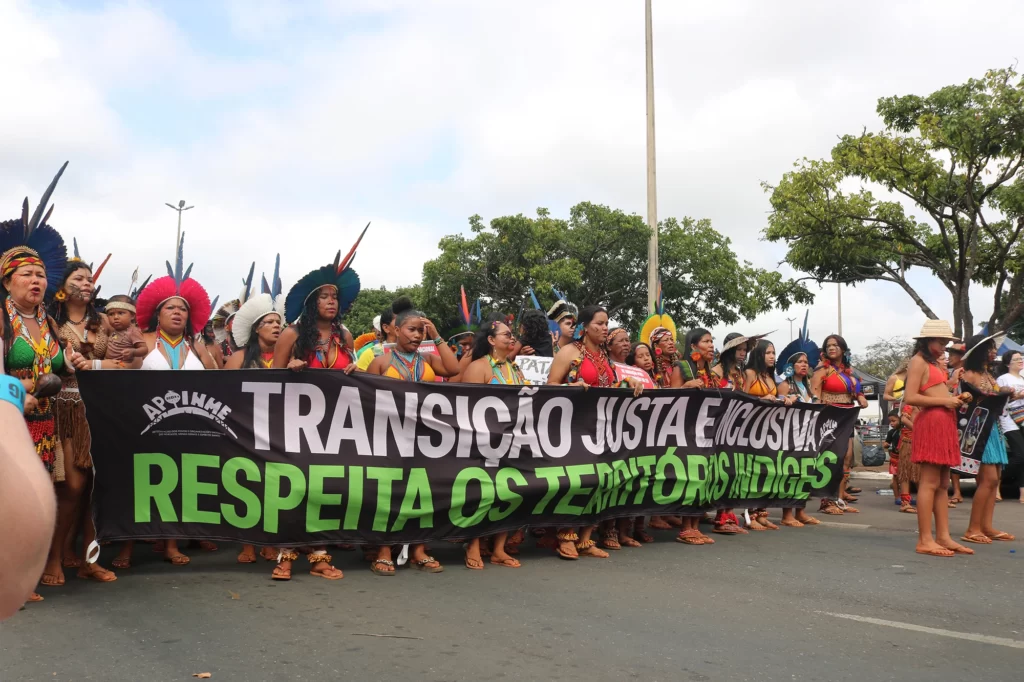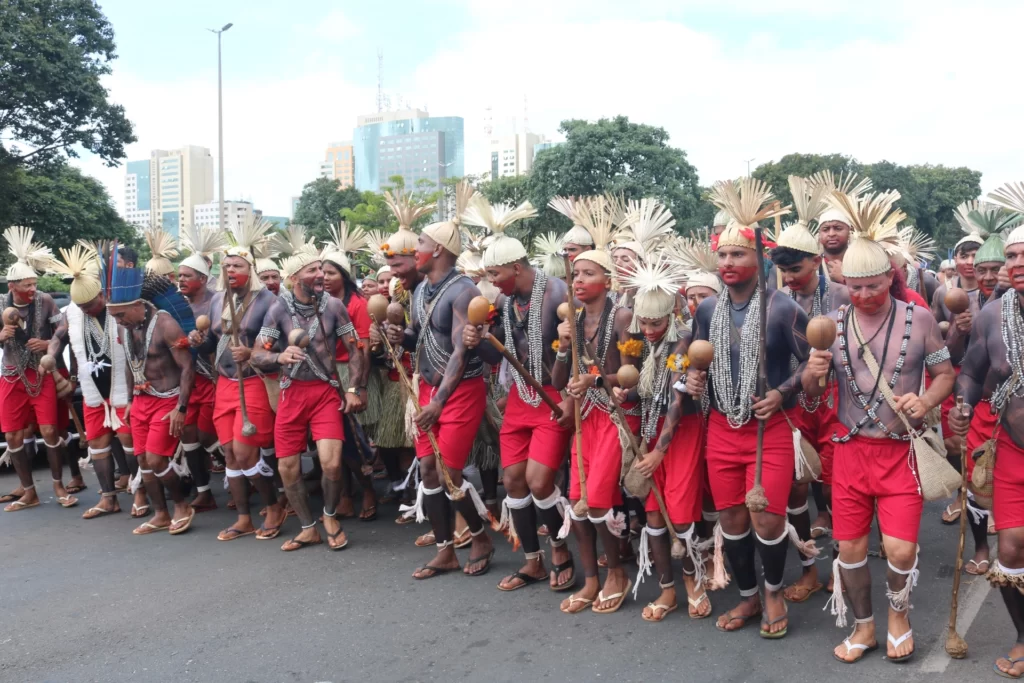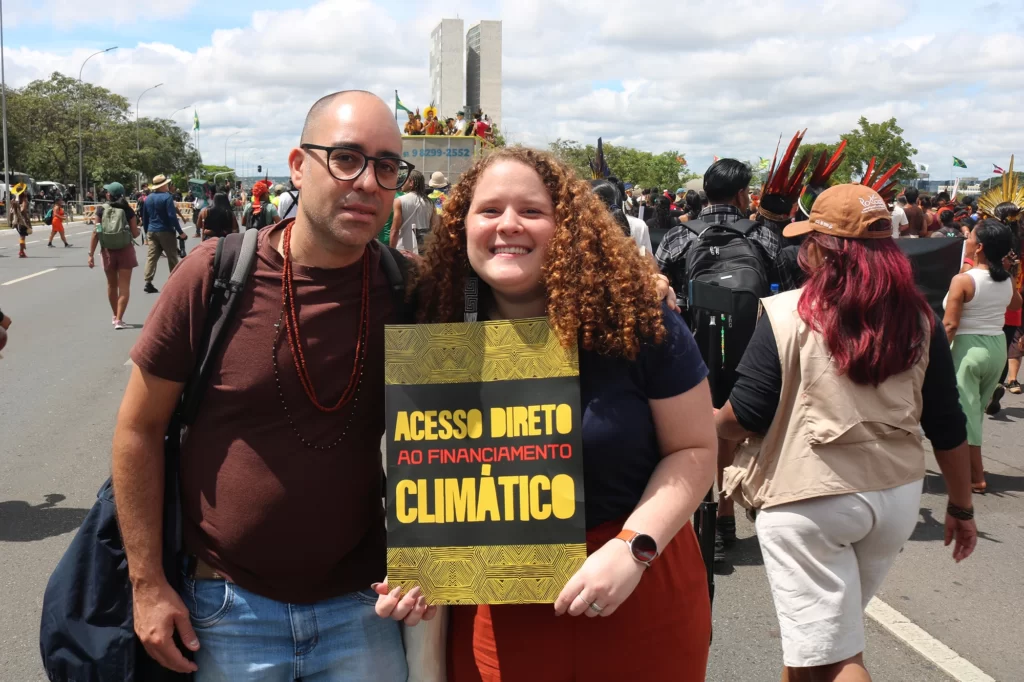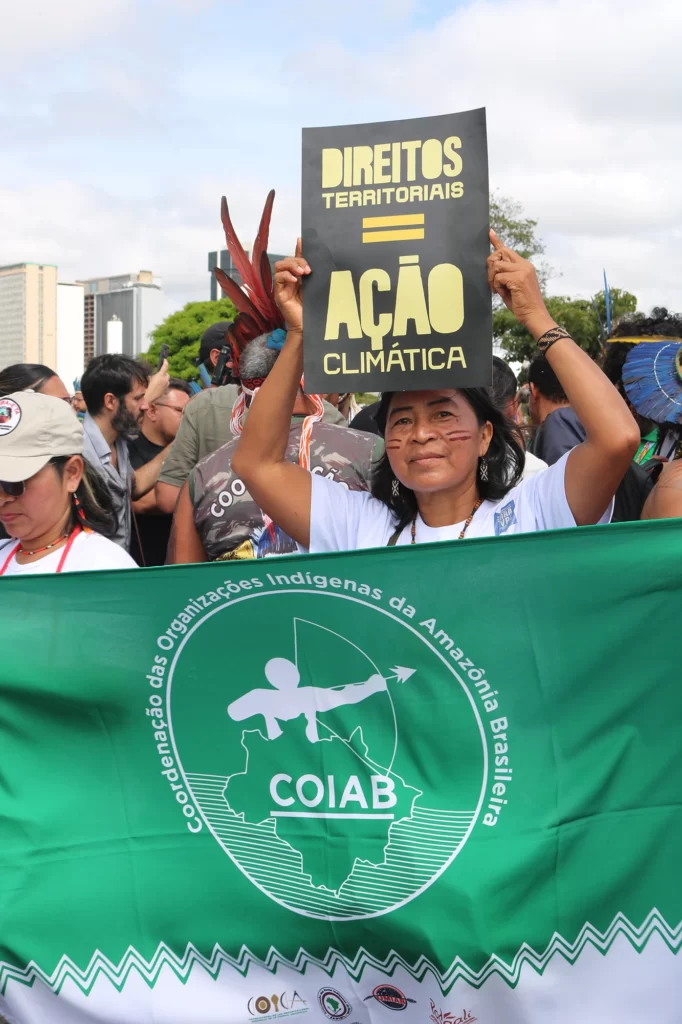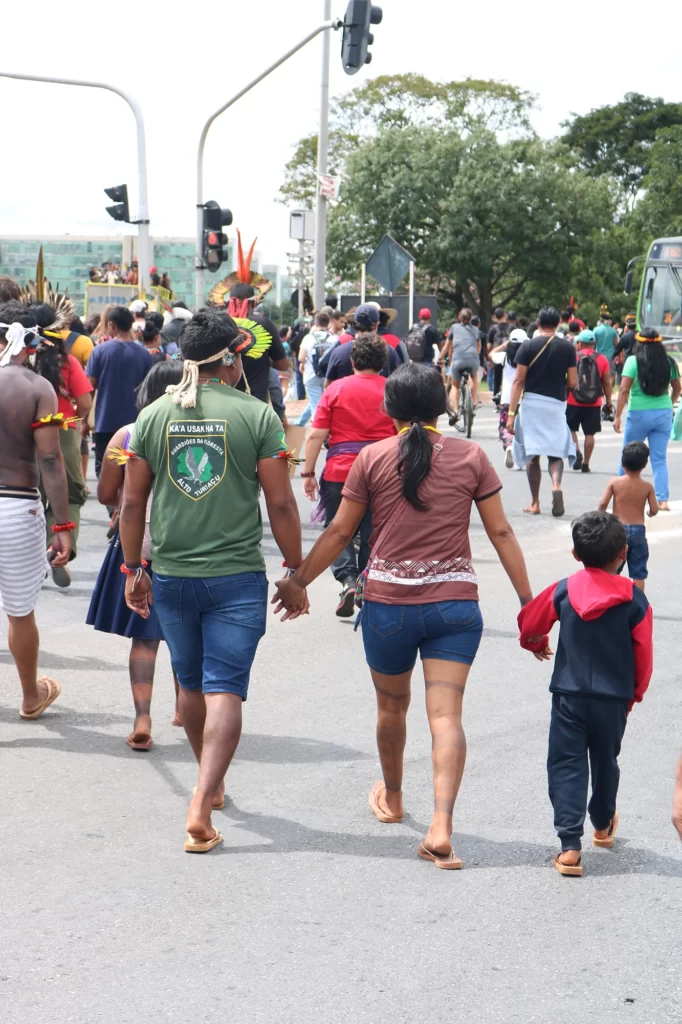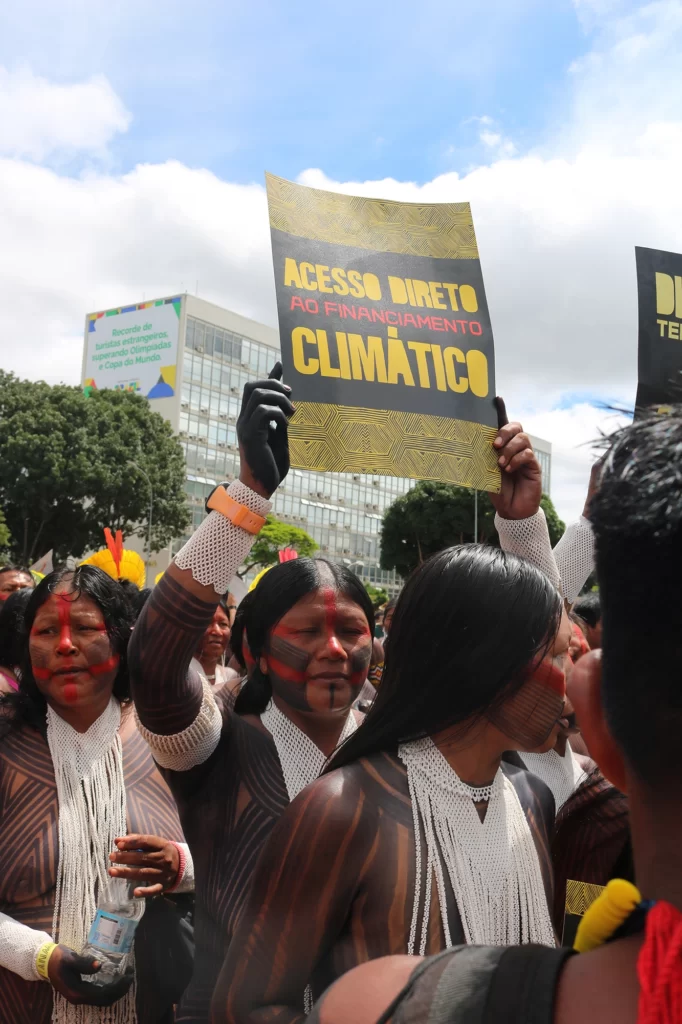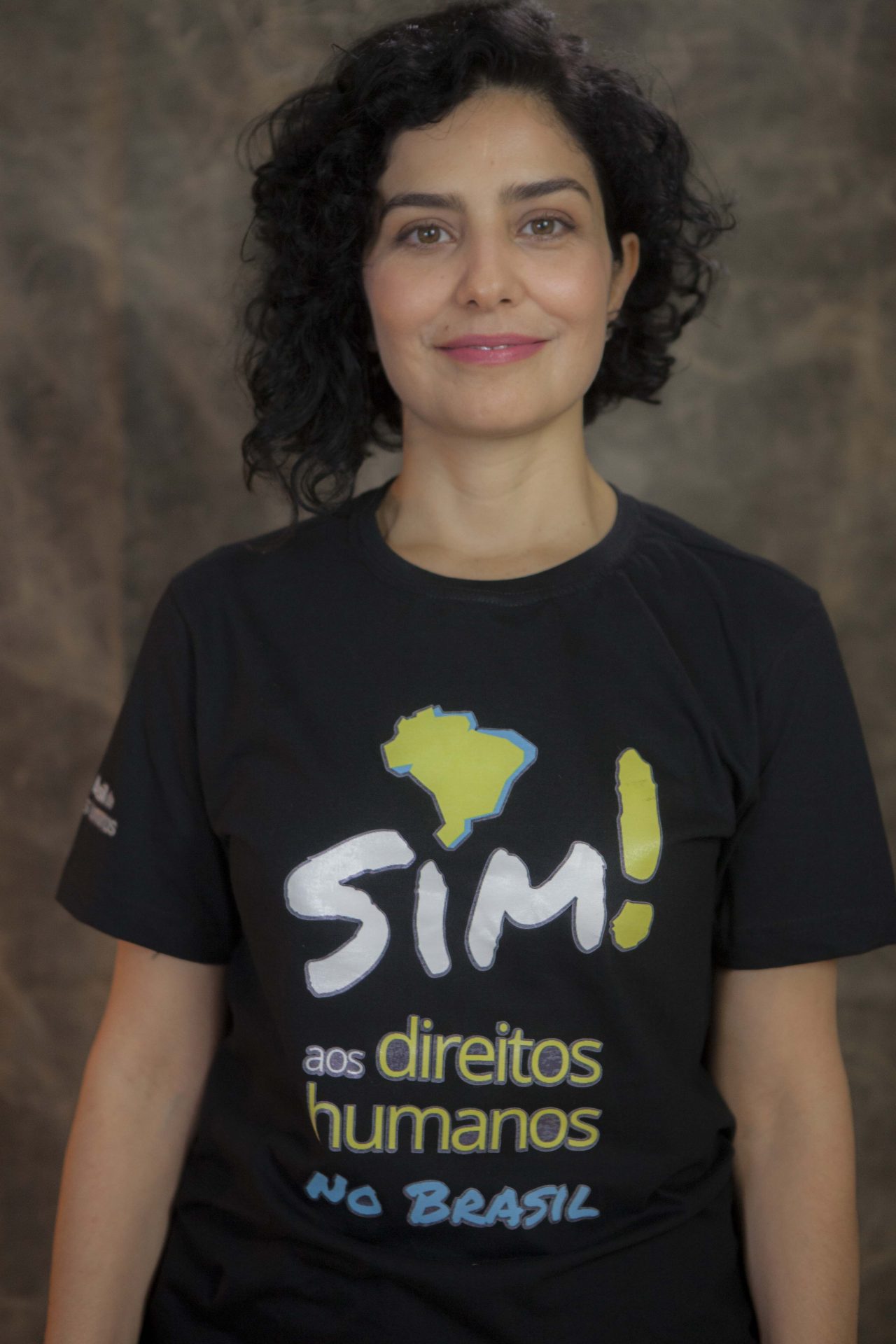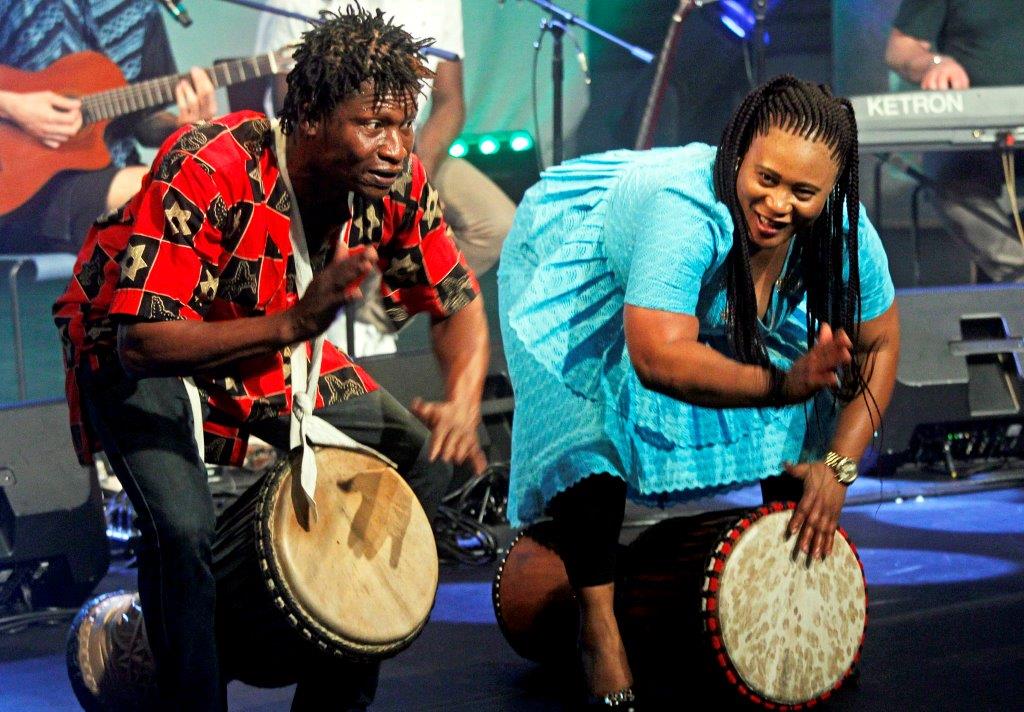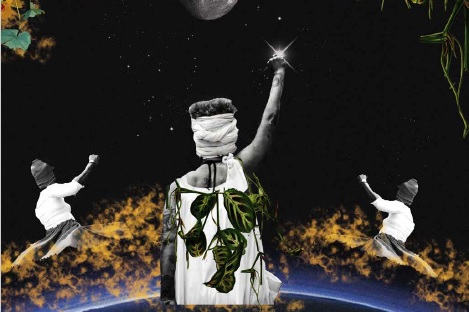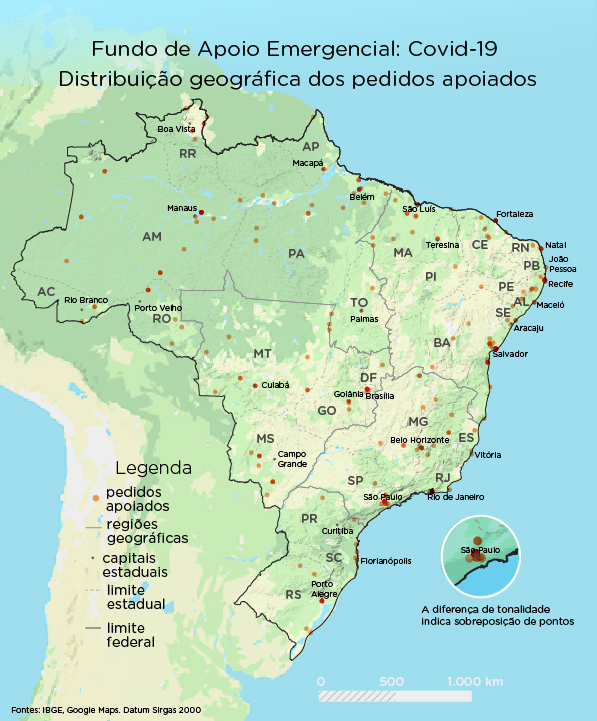With grants totaling R$ 135,000 (roughly USD 27,000), the Brazil Human Rights Fund is supporting the participation of nine Indigenous peoples’ organizations in the Free Land Camp 2025 (ATL). The ATL takes place annually in Brasília and is the largest Indigenous mobilization in the country.
This year, in its 21st edition, the ATL gathers over 7,000 Indigenous people from over 150 peoples, according to the Articulation of Indigenous Peoples of Brazil (APIB), the Camp’s organizer.
The Brazil Human Rights Fund has granted funding to APIB itself and to groups from the North, Northeast, Center-West and Southeast regions. The funding will cover expenses such as food, basic infrastructure and transportation to Brasília, and has been allocated to the following organizations:
- Coordination and Organization of the Apyãwa Indigenous People (COPIAP) – MT
- Coordination of Indigenous Organizations of the Javaé People from Ilha do Bananal (CONJABA) – TO
- Coordination of Indigenous Peoples and Organizations from the Northeast, Minas Gerais and Espírito Santo (Apoinme)
- Organization of the Kambebas from Alto Solimões (OKAS) – AM
- Aty Guasu – MT
- Indigenous Association Bom Jardim – AM
- Indigenous Association Burum Ererré – MG
- Organization of the Indigenous Peoples from the Envira River – AC e AM
Our team is present at the meeting to hear the demands and fighting strategies of the Indigenous peoples.
‘Tell the people to move forward’. The ATL 2025 takes place between April 7th and 11th. On Tuesday the 8th, the first great march of mobilization spread across the Eixo Monumental, the main avenue in Brasília, towards the National Congress.
To the sound of chants and the collective call “Tell the people to move forward! We push on!”, hundreds of Indigenous peoples’ delegations carried sashes and posters that said no to the Marco Temporal, demanded land demarcation, the right to an autonomous Indigenous education, health, and the end of violence against the Indigenous peoples and territories.
In 2023, 276 invasions were registered, illegal exploitation of natural resources and diverse damages to heritage in at least 202 Indigenous territories in 22 Brazilian states. The information is from the most recent Violence Against the Indigenous Peoples of Brazil report, an annual publication from the Missionary Indigenous Council, released in July 2024.
The Indigenous peoples also demand access to climate finance. “For us, the climate agenda is tied to the guarantee of our territories, that is the absolute priority”, said the anthropologist Gersem Baniwa, professor at the University of Brasília. Gersem Baniwa is part of the Brazil Human Rights Fund’s Board of Directors and, at the ATL 2025, organizes the debates and labor tent in the National Forum for Indigenous School Education (FNEEI).
A replica of the Justice statue decorated in Indigenous garments has been one of the main highlights of the march.
- Apoinme Delegation– Photo Mônica Nobrega – Brazil Fund Collection
- Xukuru People – Photo Mônica Nobrega – Brazil Fund Collection
- Mayk Cardoso and Thainá Mamede, from the Brazil Fund – Photo Mônica Nobrega – Brazil Fund Collection
- Rosi Arapaço – Photo Mônica Nobrega – Brazil Fund Collection
- Photo Mônica Nobrega – Brazil Fund Collection
- Photo Mônica Nobrega – Brazil Fund Collection






















